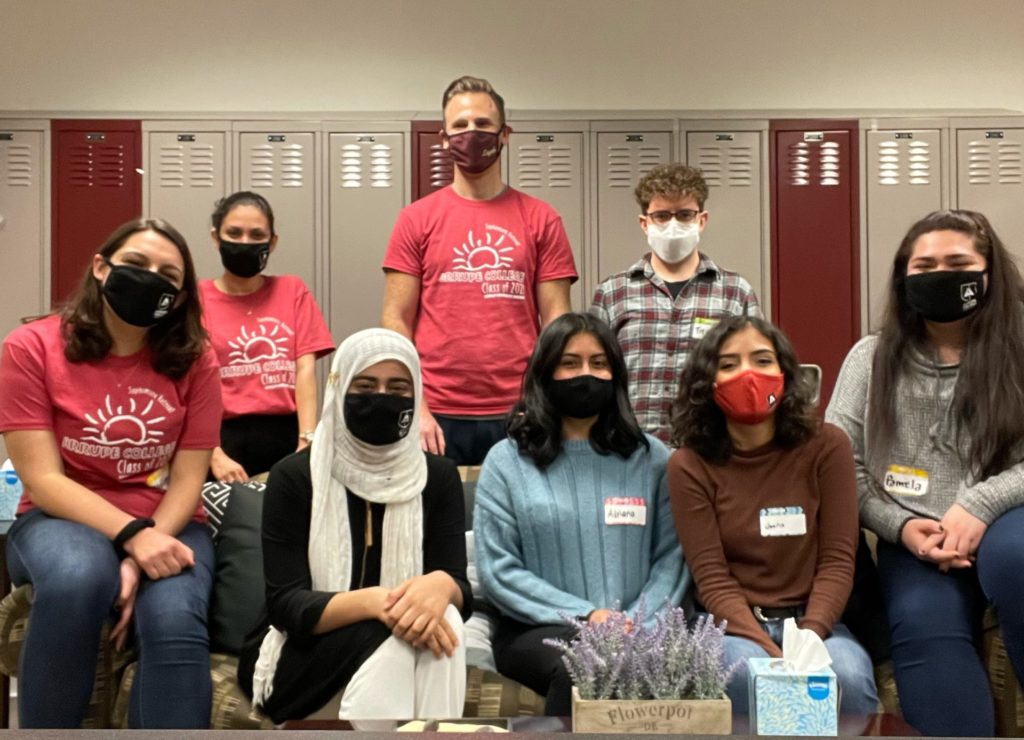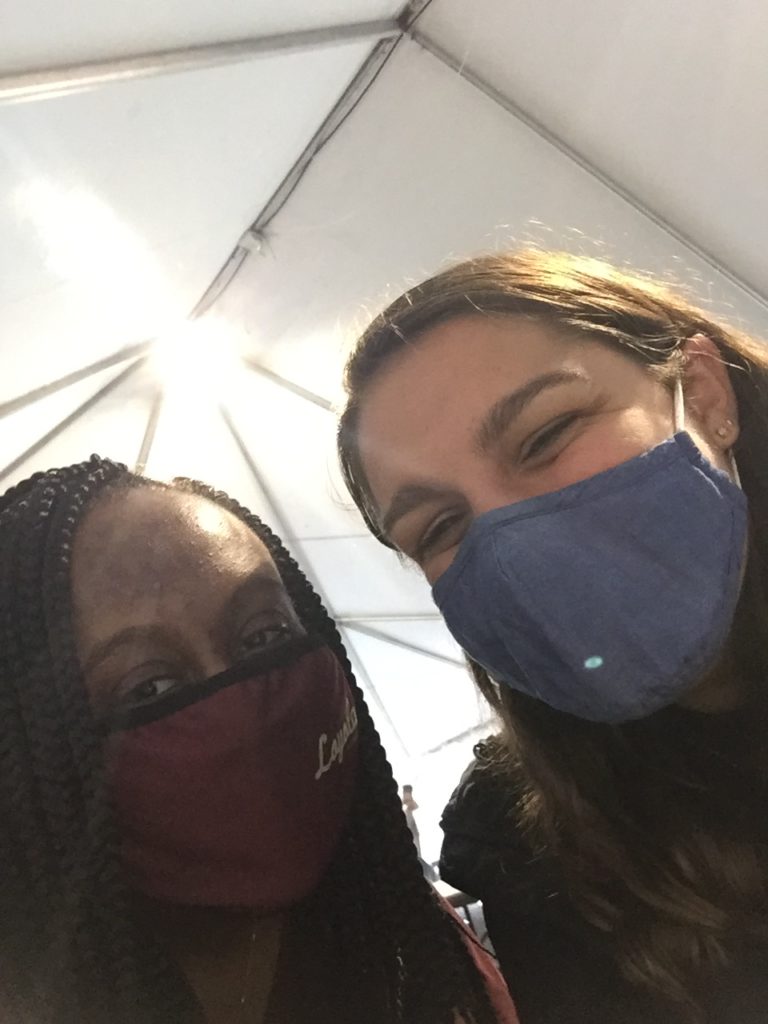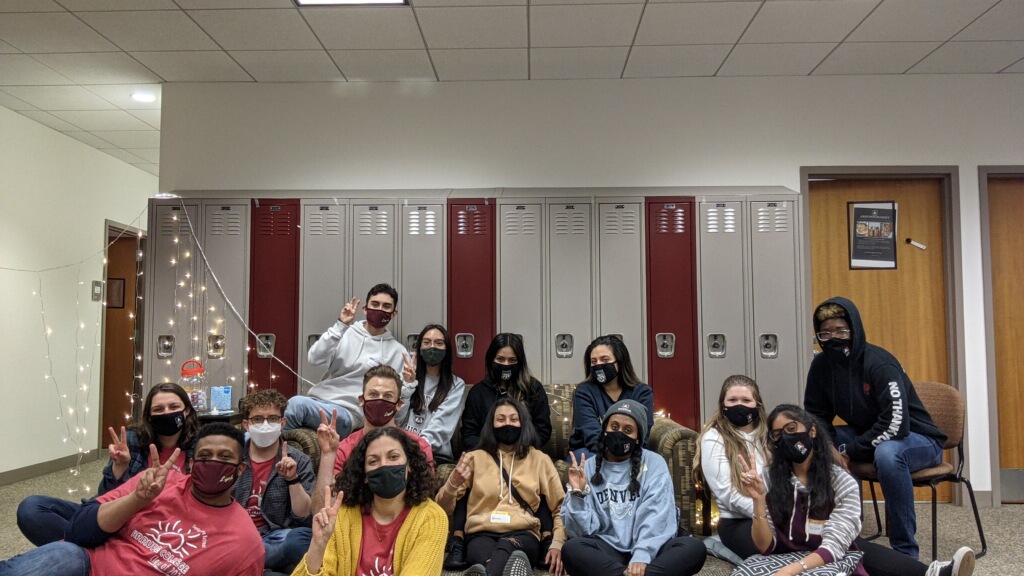Adapted from her “TEDxAmate” presentation on May 14th
I came into this year hoping to learn where to draw a boundary between what types of human services work are too much for my heart and what types my strengths lie in. I thought this year I could learn where that boundary lies for me through practicing what I heard called the ministry of presence. When I started at Arrupe, I was told that my job was based in a ministry of presence, simply being present to Arrupe students wherever they are. I knew I could never draw this boundary line in permanent marker but hopefully in chalk. As we come to the end of the year, I find myself still too unsure of where this boundary lies to even begin to pick up a piece of chalk. However, I think that I can conclude this year by saying that I have thought and learned about boundaries but not in the way I just described or expected. These boundaries are the boundaries that exist in relationships between people of different ages and with varying levels of power.

Arrupe is a college of Loyola University focused on accessibility and affordability. It is a 2-year college allowing students to earn their associate’s degree. My role as Campus Minister is in the Office of Student Services, a hub for all types of non-academic supports like therapy, case management, student organizations, and financial assistance. Because freshmen and sophomores make up the student body, the average ages of students are 18-20. This means that I am at most four years older than a student sitting across from me or, though sometimes, I am younger. Early on, I asked what this relationship means and what the boundaries are. Can we be friends? Is that allowed? What can we talk about? Should they have my cell phone number? What does it mean to enter into these relationships when I know that I will only be here for ten months? And I am still asking some of those questions, especially as I prepare to leave Arrupe. Now I ask, how do I tell them I am leaving, especially as they are about to return to campus? Can we stay in touch after I leave? Will that relationship shift now that I am not their Campus Minister? How do I say goodbye?
What does it mean to enter into these relationships when I know that I will only be here for ten months?
Honestly, I haven’t answered the questions or even begun to draw clear boundaries between students and myself. I’ve just thought about it a lot. I will continue to think about it because I hope my next job will be relationship-focused, even though it will likely not be Campus Minister to college students. While some boundaries have been difficult to set, others have been more clear. For example, I had a check-in meeting with a student with whom I have built a close relationship. We discussed many topics, including him sharing what was going on with the someone they liked. I think it is accurate to say that our relationship is a blend of friendship and mentorship. But within my comfort level, it can’t be 50/50. While they may want to share many aspects of their personal life, I don’t necessarily want to share those same parts of my life with a student. I needed to draw a line for myself and clearly define the relationship dynamic we have.
Whether defining boundaries is clear or not, no matter how young or how casual I am, I am still in a position of power compared to students. To me, the responsibility that comes with that is doing my best to support students, especially when they share difficult truths. It is drawing boundary lines for both of our well-beings. It is also knowing that I need to be careful with this power dynamic. I may not be grading papers, but I do have influence in other big parts of Arrupe life. For example, I am currently choosing retreat leaders for the fall retreats, and I am interviewing students to see who is a good fit for Arrupe’s first group of residential students living on campus next school year. Of course, I am biased to certain students, and while some of my students feel like friends to me, they can’t be just yet. I make choices and decisions that are also best for Arrupe as a whole, meaning all of the students.
The Arrupe College community is a small and strong one. The college model is one of high support that leads to these strong bonds that have given me so much to consider for myself and my students. I think I have left my questions with gratitude that my students are adults so we can have relationships after I leave Arrupe if we choose that. Otherwise, I have been, and I will continue to be figuring it out as I go along.


